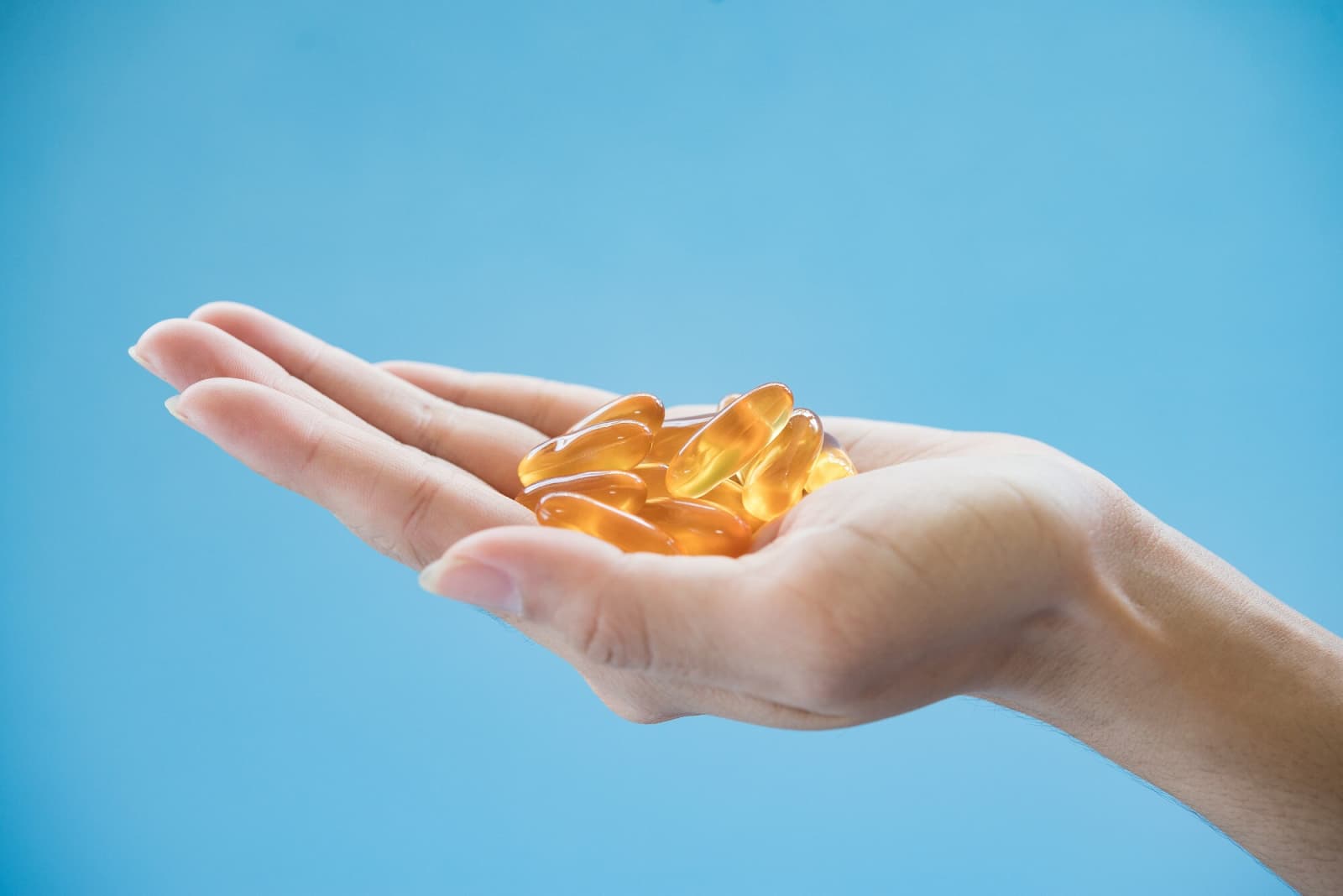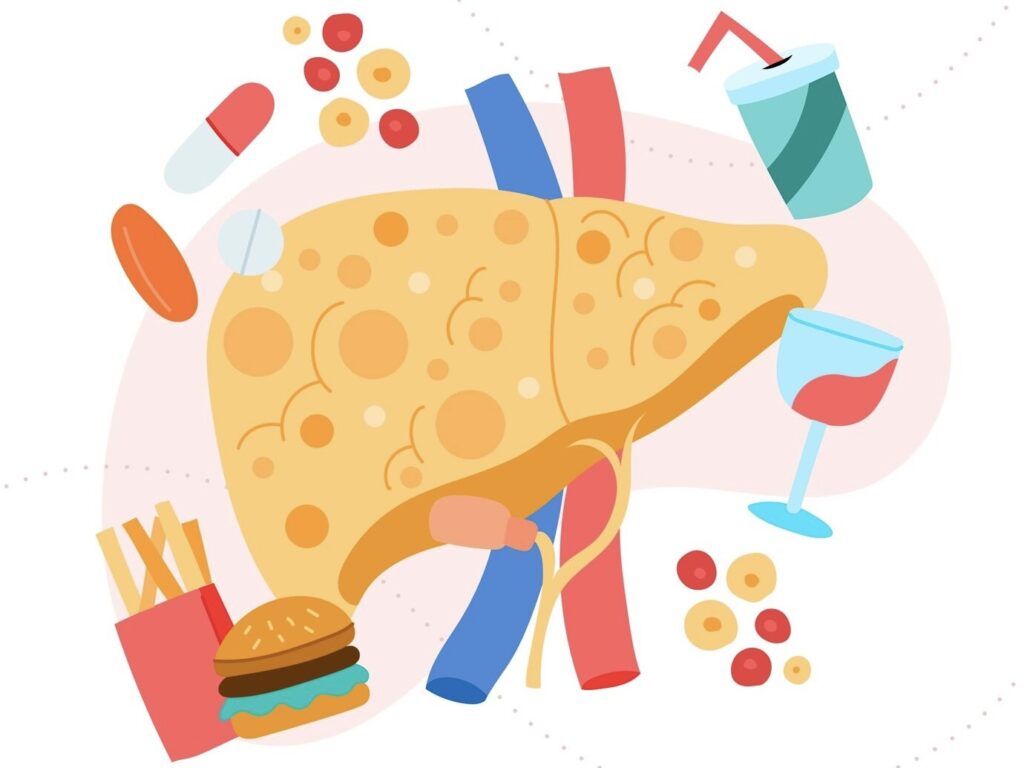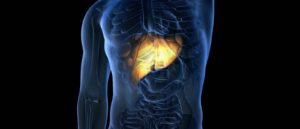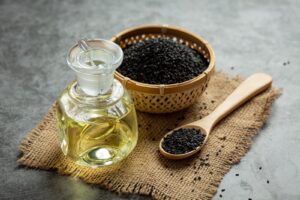
Vitamin D Deficiency and Fatty Liver Disease
Vitamin D deficiency is a prevalent issue worldwide, with significant implications for various aspects of health. One area where the impact of vitamin D deficiency is increasingly being studied is in relation to fatty liver disease. Fatty liver disease, characterized by an accumulation of fat in the liver cells, can lead to serious complications if left untreated. In this blog post, we will delve into the intricate relationship between vitamin D and fatty liver disease, exploring the role of vitamin D in maintaining liver health, the potential benefits of vitamin D supplementation, dietary sources of vitamin D to prevent fatty liver, and much more.
Vitamin D Deficiency and Fatty Liver Disease
Fatty disease, also known as hepatic steatosis, is characterized by excess fat accumulation within cells of the organ responsible for detoxification and metabolism. This condition can cause inflammation and organ damage over time. Studies have found that a deficiency in a specific nutrient may contribute to both the onset and advancement of this disease.
Research suggests that individuals with insufficient levels of this nutrient are more prone to develop non-alcoholic fatty disease, the most prevalent variant. A lack of this nutrient is linked to increased fat buildup, insulin resistance, and inflammation within the organ, factors that are pivotal in the disease’s development.
The Importance of This Nutrient for Organ Health
This nutrient is vital for maintaining the health of the organ, participating in lipid metabolism, glucose regulation, and inflammatory responses. Insufficiency can disrupt these processes, elevating the risk of fatty disease.
Additionally, insufficient levels of this nutrient have been associated with the progression of fibrosis, which involves scar tissue buildup in the organ. This can evolve into more serious conditions like cirrhosis if not addressed. Maintaining adequate levels of this nutrient can help reduce the risk of fatty disease and its complications.
Addressing Nutrient Deficiency in Patients with Fatty Disease
For those with non-alcoholic fatty disease, it’s crucial for healthcare providers to check for this nutrient’s levels. Blood tests can identify deficiencies, enabling interventions to improve nutrient status.
Supplementing with this nutrient is a common approach to rectify deficiencies in those affected by fatty disease. Prescribed supplements can help achieve and sustain proper nutrient levels. Lifestyle adjustments, such as more sun exposure, dietary changes, and physical activity, can also enhance the status of this nutrient in individuals with fatty disease.
The Role of Vitamin D in Fatty Liver Health
This nutrient plays a crucial role in managing conditions related to excessive fat accumulation in the body by influencing fat metabolism. Fat metabolism encompasses the actions involved in the breakdown, storage, and movement of fats within the body. This nutrient aids in regulating these processes, which is essential for managing conditions associated with fat accumulation.
The Anti-Inflammatory Properties of This Nutrient in Managing Excessive Fat Accumulation in the Body
Inflammation is a significant factor in conditions related to fat accumulation, leading to tissue damage and progression of the disease. This nutrient has anti-inflammatory effects that help alleviate inflammation in the body, reducing the risk of complications. It influences the expression of inflammation-related molecules and pathways, which in turn, lessens the inflammatory reaction. This protective action can prevent cell damage and decelerate the progression of diseases related to fat accumulation.
This Nutrient and Oxidative Stress: Implications for Health in Conditions of Excessive Fat Accumulation
Oxidative stress arises from an imbalance between free radicals and antioxidants, contributing to tissue damage in diseases associated with excessive fat. This nutrient is known for its antioxidant capabilities, which aid in neutralizing oxidative stress and safeguarding cells from harm.
By eliminating free radicals and bolstering the body’s antioxidant defense, this nutrient contributes to reducing oxidative damage and enhancing overall health. Including foods or supplements rich in this nutrient may bolster the body’s defenses against oxidative stress and support healthy function.
Dietary Sources of Vitamin D
Here is a list of some common dietary sources of vitamin D that can help maintain optimal levels of this essential nutrient:
| Food Sources | Vitamin D Content (IU per serving) |
|---|---|
| Fatty fish (salmon, mackerel) | 450-600 IU |
| Fortified dairy products | 100 IU per cup of milk |
| Egg yolks | 40 IU per egg |
| Fortified cereals | 40-50 IU per serving |
| Beef liver | 42 IU per slice |
Including these foods in your diet can contribute to your daily vitamin D intake and support liver health.

Vitamin D Supplementation for Fatty Liver Disease
Supplementation has emerged as a potential therapeutic strategy for managing fatty disease in the organ responsible for detoxification and metabolism. Studies have investigated the efficacy of supplementation in improving function, reducing fat accumulation, and ameliorating inflammation in patients with this condition.
Clinical trials have demonstrated that supplementation can lead to improvements in enzymes, markers of inflammation, and insulin sensitivity in individuals with NAFLD. By restoring adequate levels, supplementation may help alleviate some of the underlying mechanisms driving disease progression.
Dosage and Duration of Supplementation
The optimal dosage and duration of supplementation for individuals with this condition may vary depending on factors such as baseline levels, disease severity, and individual response to supplementation. Healthcare providers typically recommend…
Monitoring and Follow-Up Care for Patients Receiving Supplementation
Regular monitoring and follow-up care are essential for individuals receiving supplementation for this condition. Healthcare providers may conduct periodic blood tests to assess levels and function, ensuring that patients are responding positively to supplementation.
It is important to communicate any changes in symptoms or side effects to your healthcare provider while undergoing supplementation. Adherence to the prescribed dosage and recommendations for lifestyle modifications can optimize the benefits of supplementation and support overall health.
Considerations for Supplementation
When considering supplementation for this condition, keep the following points in mind:
- Consult with a healthcare provider to determine the appropriate dosage based on your individual needs;
- Monitor levels regularly to ensure optimal supplementation outcomes;
- Combine supplementation with a balanced diet and healthy lifestyle practices for comprehensive health support.
Conclusion
In conclusion, vitamin D plays a crucial role in maintaining liver health and preventing the development and progression of fatty liver disease. From regulating lipid metabolism and inflammation to influencing oxidative stress and fibrosis, vitamin D exerts multifaceted effects on liver function.
For individuals with fatty liver disease, addressing vitamin D deficiency through supplementation, dietary modifications, and lifestyle changes can offer potential benefits in managing the condition and reducing the risk of complications. By understanding the intricate relationship between vitamin D and fatty liver disease, healthcare providers and patients alike can work towards optimizing liver health and overall well-being.

